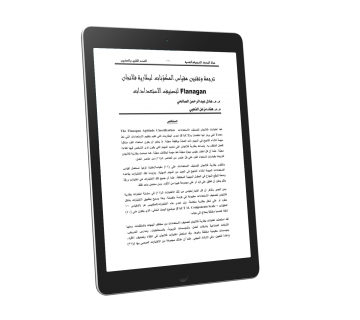Levels of Some Vitamins and Minerals in Children With Autism Spectrum Disorder in Baghdad City
and Their Relationship to Gender
Hajir Muayad Yaseen1, Areej Abbas Zabbon2, Adil A.S. Al-Salihy3
Department of Biology, College of Science, Mustansiriyah University, Bagdad, Iraq1,2
Consultant Cognitive Neuroscientist, Mental Health Department, Psychological Research Centre, Ministry of Higher Education and Scientific Research. Bagdad, Iraq3
ABSTRACT:
The objective of this research was to compare numerous vitamins and minerals levels in children with autism spectrum disorders (ASD) compared to those in age-matched normally developing (TD) children, as well as to evaluate their relationship to gender. The study involved the ASD children attending Iraqi Association for Psychotherapy (IAP) in Baghdad. The current study was carried out on (63) child with both genders (33 test group with17 males and 16 females, and 30 control group with 16 males and 14 females). The diagnosis of autism spectrum disorder (ASD) was determined based on information acquired from history collection, clinical symptoms, and observations, The controls for the Childhood Autism Rating Scale (CARS) and There were no abnormal history of motor, verbal, or social developmental deficits in the checklists, as evidenced by the parents’ remarks with age range (4-11) years, during the period extended between November (2020) and March (2021). The samples of children divided into test- control and male – female group. The present study showed the level of Zinc (mg/dl) decreased significantly (P≤0.05) in test when compared to control and significantly increase (P≤0.05) in male than female group, while level of calcium (mg/dl) decreased significantly (P≤0.05) in control group and its no different between male and female group. Vitamins D3 and B12 (ng/ml) levels decreased significantly (P≤0.05) in test group when compared to control group, but in male-female group the level of vitamin D3 decreased significantly (P≤0.05) in male group, while vitamin B12 deceased in female group. We discovered that children with ASD had higher vitamins and minerals deficits than typically developing children, and that the level of these vitamins and minerals correlated with ASD symptoms and the child’s gender.
KEYWORDS: Autism Spectrum Disorder (ASD), Calcium, Zinc, D3, B12.




لا تعليق